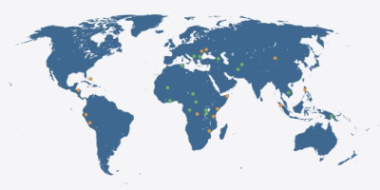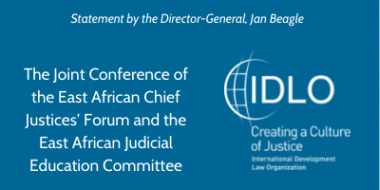In Court: The Challenge of Commercial Law
Unless it boosts capacity in commercial law, Mongolia risks discouraging inward investment, not least in the vital mining sector. To avoid this happening, IDLO has been working with Mongolia's Supreme Court and Judicial General Council to improve the courts' ability to apply commercial law. In particular, we have ensured that 24 Mongolian judges are equipped to train their peers in areas such as mining disputes, intellectual property and competition law.















